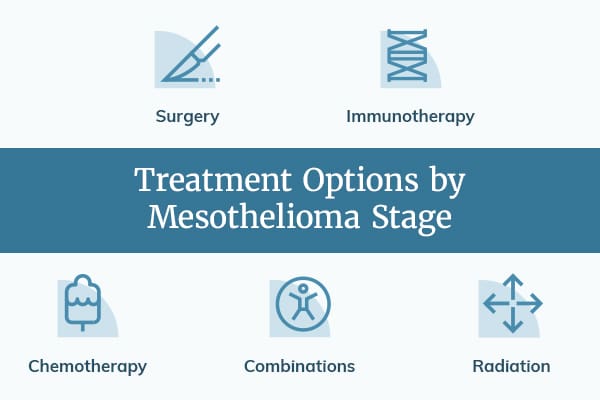Treatment for Stage 4 Pleural Mesothelioma
Stage 4 pleural mesothelioma usually does not qualify for surgery. The tumors are so big and numerous that they likely could not be safely and fully removed. But many patients still undergo combination treatment without surgery. In the past, chemotherapy followed by radiation was a common approach.
In recent years, the combo of Opdivo® (nivolumab) and Yervoy® (ipilimumab) has become a standard option. This regimen of immune checkpoint inhibitors may improve quality of life better than chemo. Many patients also have the option to undergo other therapies after Opdivo and Yervoy.
Even though stage 4 patients may not qualify for surgery, they still have good treatment options. These may include:
Research and drug development advances continue opening new possibilities for treating late-stage pleural mesothelioma.
Treatment for Peritoneal Mesothelioma
Peritoneal and pleural mesothelioma patients have similar treatment options. But peritoneal mesothelioma has a different staging system. Still, treatment recommendations are based on similar factors. Doctors consider whether a surgery-based approach is likely to extend survival better than immunotherapy or chemo.
Many peritoneal mesothelioma patients undergo surgery plus heated chemo in the belly (HIPEC). But immunotherapy is also an option.
What Does This Mean for Mesothelioma Patients?
Many factors go into mesothelioma treatment recommendations. Doctors weigh the cancer stage heavily in these decisions. But stage alone does not determine a patient’s treatment options or prognosis. And surgery-based approaches are not the only effective treatments.





